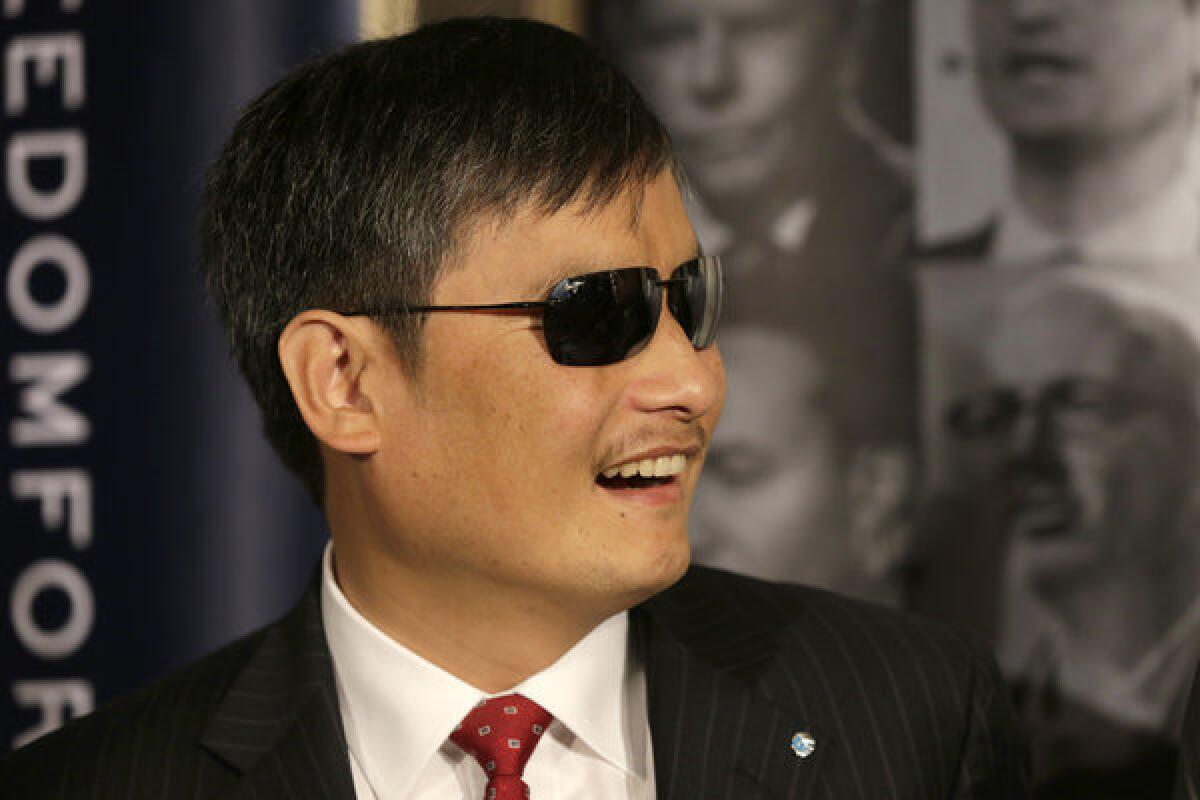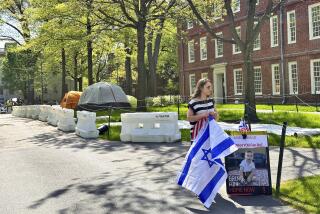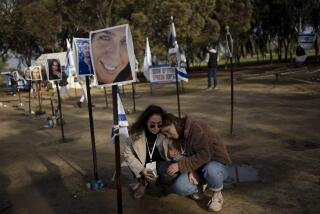Blind Chinese dissident Chen Guangcheng says NYU pushing him out

- Share via
BEIJING -- Chen Guangcheng, the blind Chinese dissident, is charging that New York University is kicking him out of a fellowship because of pressure from the Chinese government.
The self-trained lawyer, who set off an international incident last year by taking refuge in the U.S. Embassy in Beijing, said the university asked him and his wife and two children to leave in July.
“As early as last August and September, the Chinese Communists had already begun to apply great, unrelenting pressure on New York University,” Chen said in a statement released early Monday. “The work of the Chinese Communists within academic circles in the United States is far greater than what people imagine.”
NYU says Chen was on a one-year fellowship and that it is helping him find another position.
Chen’s supporters link the university’s decision to a new campus it is opening this year in Shanghai. The university, run along with East China Normal University, is being billed as the first jointly run Chinese-American university that will be able to award degrees. The first class of 300 students is supposed to start in the fall, with a total enrollment of 3,000 expected eventually.
“American universities are out chasing the China dollar and are very reluctant to work with dissidents who have a strong voice in China,” Bob Fu, a Texas-based activist who helped Chen flee to the United States, said in a statement. “It does not always have to be direct pressure from Beijing. There is also self-censorship, particularly if a college president believes their China campus or the future enrollment of Chinese students will be sabotaged.”
The 41-year-old Chen is an iconic figure, recognizable from his black sunglasses, who has attracted a following of celebrities, such as actor Christian Bale, and politicians.
Chen, who used to help villagers fight abuses of China’s family size limits, escaped in April of last year from house arrest in China’s Shandong province and took refuge in the U.S. Embassy. After weeks of tortuous and well-chronicled negotiations, he arrived at New York University, where he was widely interviewed and photographed, most often in Washington Square.
A friend of Chen’s said that the fellowship at NYU was originally supposed to be for one year, but that Chen, as of a few weeks ago, when they last spoke, was hoping to extend it.
“The university has been extremely kind to him,” said the friend, who asked not to be quoted by name. “It is not easy for a university to have a dissident. They are fighting spirits by nature.”
The dispute with NYU mirrors a political controversy that erupted last year when Chen first took refuge in the embassy. The Obama administration initially negotiated for safeguards that would allow Chen to remain in China, but the deal blew up, with Chen -- backed by congressional Republicans -- insisting he felt pressured and threatened.
Rep. Christopher H. Smith (R-N.J.), chairman of the House Foreign Affairs Subcommittee on Human Rights, said last week that he might convene hearings on whether China was unduly pressuring American universities.
ALSO:
North Korea calls for high-level talks with U.S.
Along with the meek, Pope Francis blesses the Harleys
Rowhani victory in Iran raises cautious hopes in region
More to Read
Sign up for Essential California
The most important California stories and recommendations in your inbox every morning.
You may occasionally receive promotional content from the Los Angeles Times.










